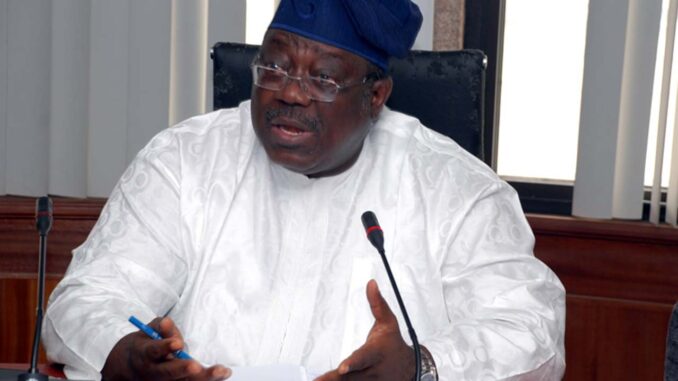
Henry Glassie, the American historian, writes that “History is not the past but a map of the past, drawn from a particular point of view, to be useful to the modern traveller.” This axiomatic statement grounds the fundamental significance of the nature and the relevance of history and historical interpretation in all human endeavors. From statecraft and governance to personal and collective enterprises, history enables us to navigate the present and orients the future. Someone says it is an early warning signal for those who pays the needed attention to its signs. Indeed, for David McCullough, another American historian, “History is who we are and why we are the way we are.” In this piece, I will like to deploy historical analysis to (a) put the present state and future possibilities of the Nigerian civil service in perspective; (b) outline a generational perspective to enable me figure out the present state, and (c) give an overall picture of who we are and why we are the way we are in the Nigerian civil service.
Generational framework attempts to provide a trajectory of historical analysis founded on the significance of particular generations in history. History is often reckoned with in individualistic terms, as the deeds and actions of strong men and women. A generational analysis however, relocates the variable of historical significance to generations of individuals in history; those whose collective actions and deeds contributed to the understanding of the paths and directions that history took and is taking. Of course, generations are very difficult to delineate, and this is because one generation merges into another. But this objection is not strong enough to undermine the distinctness of generations in, for instance, administrative history in Nigeria.
In most human rhetoric, the idea of generation plays a useful role. However, we fail to explore the deep sociological and historical possibilities inherent in deploying the concept as a significant variable of analysis. I am deploying the idea of “generational capital” to name the potentials and possibilities that a generation can bring to bear on the evolution of a family, a community, a nation or an institution. The obverse is also important: generational deficiency links the unwillingness or inability of any generations to the failure of the recipient of their capacities and capabilities.
The trajectory of the emergence and institutionalization of public administration and the civil service in Nigeria benefits immensely from a generational analysis. There are three generations that contribute capital and deficiency to the institutional performance and productivity quotients of the Nigerian civil service. Of course, the first generation of civil servants and public administration belong to what we now fondly refer to as the golden age of the public service in Nigeria. This first generation unraveled between the 50s and the early 60s. This period coincided first with the inauguration of the Nigerian civil service in 1954 as a nascent institution, and the political independence of Nigeria. These two facts significantly attest at once to the quality of the officers that founded the civil service and the institutional quality of the public service itself. The Nigerian state therefore began its post-independence existence with a very strong and professional civil service, regarded as perhaps the strongest of the colonial legacies bequeathed to Africa. This civil service framework was one nurtured on the traditional Weberian structure which required from civil servants the requisite of anonymity, neutrality and impartiality. Thus, a civil servant’s overall profile is therefore expected to be circumscribed by efficiency, effectiveness, integrity, accountability, responsiveness, representativeness, loyalty, equity, fairness, and so on.
Those we call the civil service pioneers—Simeon Adebo, Jerome Udoji, Samuel Manuwa, M. O. Ani, I. O. Dina, Joseph McEwen, S. Ade Ojo, Ojimiri Johnson, C.O. Taiwo, Fola Ejiwunmi, G.E.A. Lardner, Sule Katagum, Joseph Imoukhuede; Ahmed Talib and Abubakar Koko (Udoji Commission), and many more—came into an inherited British civil service founded on a strong tradition. Those that became a part of this institution became living exemplars of its traditions and framework. Choosing a civil service career at that time conferred prestige and status in society.
The condition of service supported this class recognition. At this point in its evolution, the civil services were not perfect but they stood out as value-based institutions distinguished in competence, professionalism and moral rectitude. They attracted the best and the brightest. Their internal governance was entrusted to an independent, non-partisan and impartial beacon of integrity—the Public Service Commission. Recruitment was strictly meritocratic and promotion was based on merit and performance.
There were attractive competitive and comparable conditions of service and generous and well-funded pension package.
The second generation of public administrators and civil servants, from the late 60s to early 70s, the core of which constitutes those we fondly refer to as the super permanent secretaries. And the list of the members of this illustrious generation of public servants is sterling: S. Olabode Wey, M. A. Ejueyitchie, Abdul Aziz Atta, C. O. Lawson, Allison Ayida, Liman Ciroma, Shehu Musa, Gray Eromosele Longe, Ahmed Joda, Philip Asiodu, Ime Ebong, Mrs. Folayegbe Akintunde-Ighodalo, P. T. Odumosu, N. U. Akpan, Ali Akilu, Francesca Emanuel, Ibrahim Damcida, Musa Daggash, Prince Solomon Akenzua, Prince Festus Adesanoye, Princess Tejumade Alakija, Sunday Awoniyi, Adamu Fika, Olu Falae, G.P.O. Chikelu, Prince Sanda Ndayako, Theophilus Akinyele, Jonah Ogbole, and many others. The permanent secretaries that carried “super” qualifier amongst this corps were so-called because they were called upon at a most desperate and chaotic time in Nigerian history—the civil war period—to deploy their administrative acumen, competences and wisdom to take Nigeria through the pre-war, war and post-war periods. Their challenges also dovetailed into managing the command-and-control structure of the military during and after the war. So, as Theodore Roethke, the American poet, noted, the eyes of these public servants had to see in this dark time.
To be continued tomorrow
Prof. Olaopa is retired Federal Permanent Secretary & Professor, National Institute For Policy and Strategic Studies (NIPSS), Kuru, Jos. (tolaopa2003@gmail.com)
END

Be the first to comment